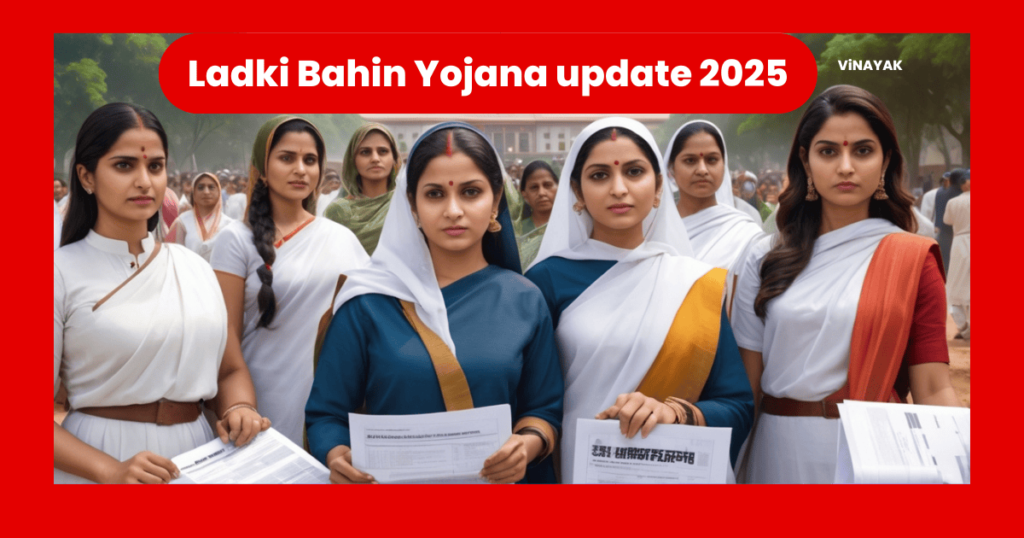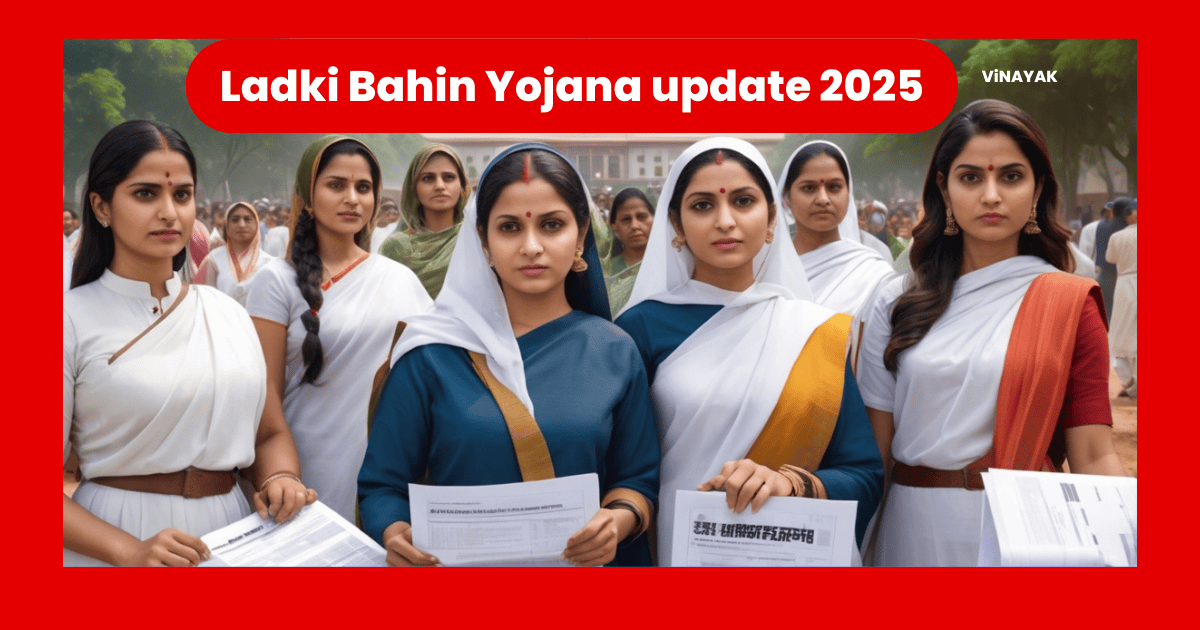Introduction
The “Ladki Bahin Yojana” (Beloved Sister Scheme) was launched with much fanfare by the Mahayuti government before the 2024 Maharashtra Assembly elections. The scheme promised a financial aid of ₹1,500 per month to women in the state. However, recent developments have sparked debates, as reports suggest that nearly 60 lakh applications may be disqualified due to a reevaluation process. This article delves into the background, implications, and controversies surrounding the scheme.

The Election Strategy Behind the Scheme
Before the 2024 Assembly elections, the Mahayuti alliance made strategic moves to capture the trust of women voters. They introduced the Ladki Bahin Yojana in July 2024, aiming to provide financial support to women across Maharashtra. The scheme’s launch created a wave of optimism among women voters, which is believed to have played a crucial role in the alliance securing 235 out of 288 seats, decimating the opposition Mahavikas Aghadi.
The Promises and Initial Reception
The scheme began in September 2024, with the government transferring ₹1,500 directly to the bank accounts of eligible women. Videos showcasing the positive impact of the scheme went viral, painting a picture of a government that cared for its female citizens. Many women publicly expressed their gratitude, crediting the government for easing their financial burdens. This goodwill seemingly translated into votes during the elections.
The Controversial Review Process
What Prompted the Review?
Post-elections, reports emerged that the government was reevaluating the applications under the Ladki Bahin Yojana. Statements from Deputy Chief Minister Devendra Fadnavis and other leaders confirmed that applications would be scrutinized based on specific eligibility criteria. This move sparked outrage, as women felt betrayed by a government they had helped elect.
Key Reasons for Application Rejection:
- Income Criteria: Applications from families with an annual income exceeding ₹2.5 lakhs would be disqualified.
- Vehicle Ownership: Women whose households owned four-wheelers would not be eligible.
- Multiple Applications: Cases where a single individual submitted more than one application.
- Relocation Issues: Women who had moved out of Maharashtra after marriage but still applied for the scheme.
- Discrepancies in Documents: Mismatches in Aadhaar or other identification details.
- Benefit from Other Schemes: Women already benefiting from other government schemes.
Voices from the Opposition
Leaders from the opposition have criticized the government’s decision, accusing them of using the scheme solely for electoral gains. Ajit Pawar’s faction of the Nationalist Congress Party (NCP) argued that the government’s actions were unjust and hypocritical. Chhagan Bhujbal, a senior opposition leader, suggested that the government’s promises during the elections were a farce, designed to win votes.
Government’s Defense
The Mahayuti government defended its stance by stating that the reevaluation process aimed to ensure that only genuinely eligible women benefit from the scheme. They argued that continuing to provide benefits to ineligible applicants would be a misuse of taxpayers’ money. Leaders clarified that the original guidelines for the scheme had always included these criteria and that the government was merely enforcing them post-election.
Impact on Beneficiaries
Financial Stress:
Many women who had started relying on the monthly financial assistance are now facing uncertainty. They worry about how the rejection of their applications might affect their families’ budgets.
Psychological Impact:
The abrupt review has left many women feeling disillusioned and betrayed. For them, the scheme was not just about money but a symbol of recognition and support from the government.
Broader Implications
Political Ramifications:
The controversy surrounding the Ladki Bahin Yojana could have significant political repercussions. Women voters, who played a pivotal role in the Mahayuti’s electoral victory, might rethink their allegiance in future elections.
Economic Inequality:
Critics argue that the government’s reevaluation disproportionately affects marginalized groups, further widening the gap between different socio-economic classes.
Lessons from Madhya Pradesh
Interestingly, a similar scheme was implemented in Madhya Pradesh by the BJP-led government before their state elections. There, too, the scheme was credited with helping the ruling party secure a win. However, Maharashtra’s case highlights the pitfalls of using welfare schemes as short-term electoral strategies without robust implementation.
More information :
Conclusion
The Ladki Bahin Yojana was launched with noble intentions, aiming to empower women and provide financial relief. However, the post-election scrutiny and potential disqualification of 60 lakh applications have raised questions about the government’s priorities. As debates continue, one thing is clear: the scheme’s controversy will remain a talking point in Maharashtra’s political discourse for years to come.
What do you think about the Mahayuti government’s handling of the Ladki Bahin Yojana? Share your thoughts in the comments below.

